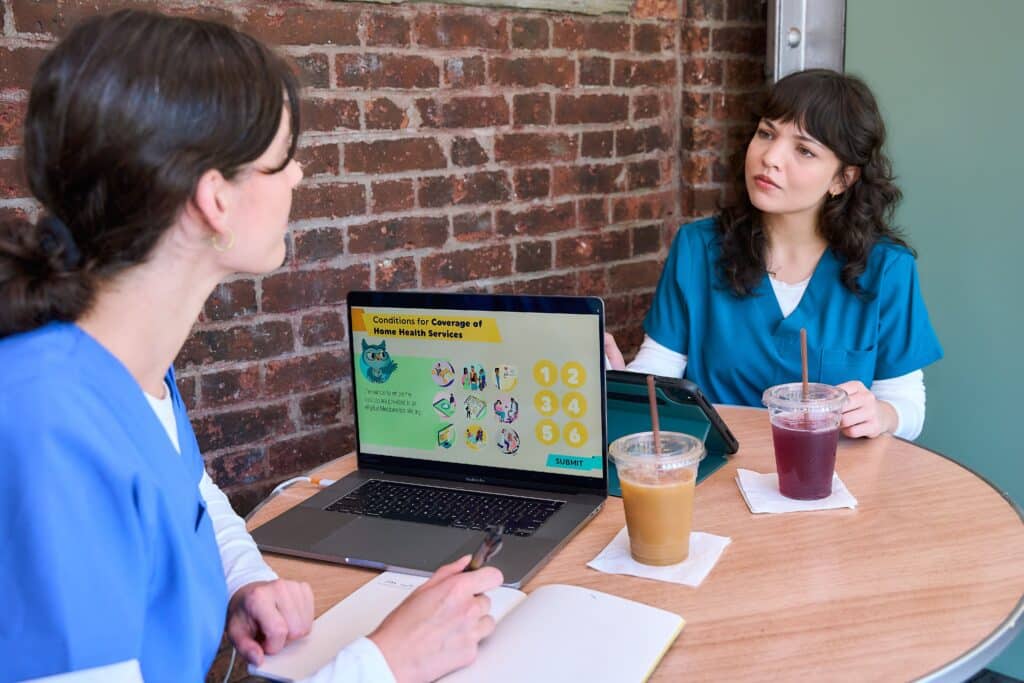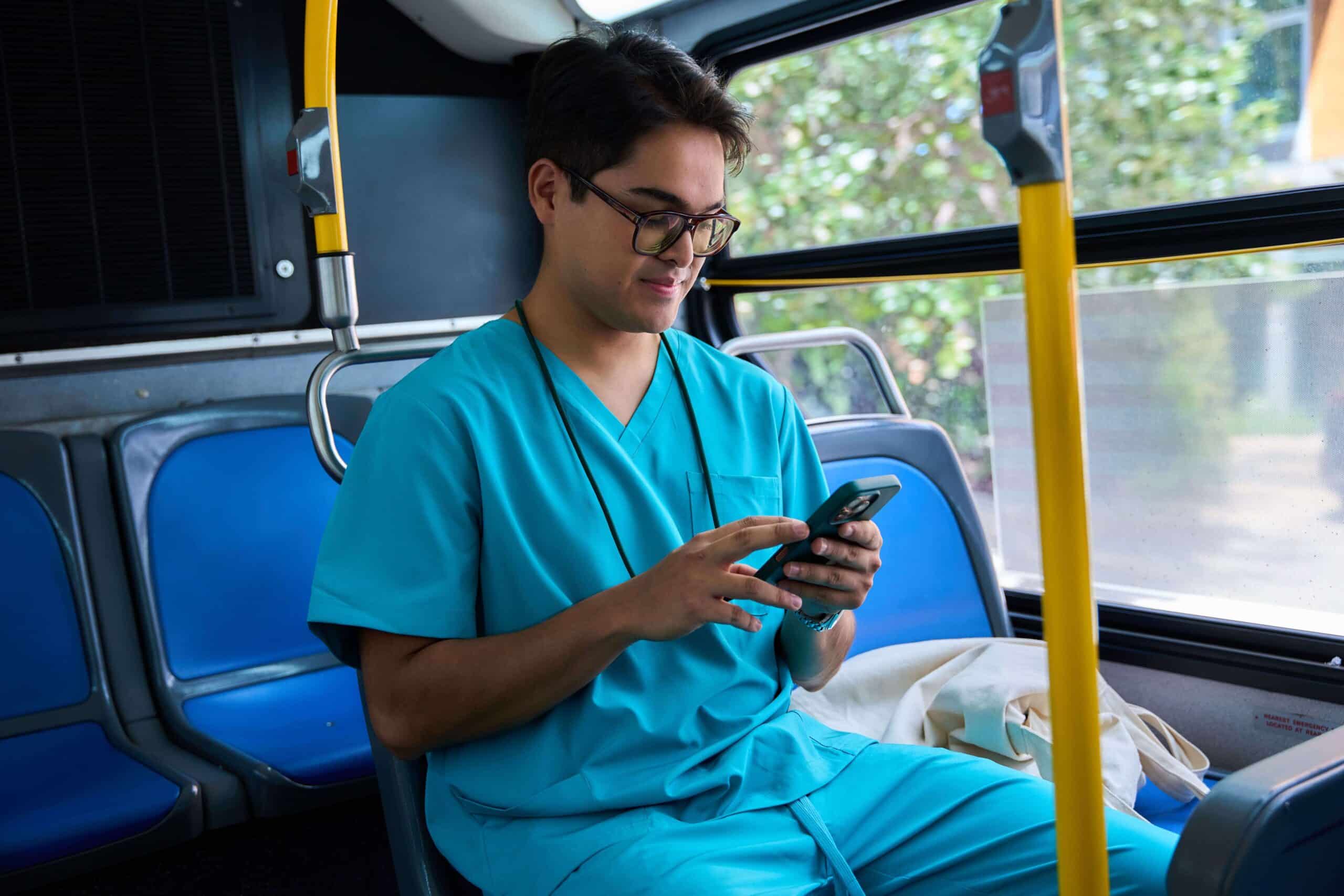Research shows that 95% of healthcare workers report feeling overwhelmed by their workload, yet continuing education remains critical for patient safety and regulatory compliance. Traditional training methods, with their lengthy sessions and inflexible schedules, are failing to meet the needs of modern healthcare environments.
Microlearning serves as a revolutionary approach that’s transforming how busy clinicians access and retain essential knowledge. Studies demonstrate that organizations using microlearning report a 50% increase in employee engagement and 20% better retention rates compared to conventional training methods.
The neuroscience behind effective microlearning
The human brain can only process a limited amount of information at any given time before cognitive overload sets in. This neurological reality makes traditional hour-long training sessions particularly ineffective for healthcare workers who are already mentally exhausted from patient care responsibilities.
Microlearning leverages the brain’s natural learning patterns by delivering focused, bite-sized content typically lasting 3-15 minutes. This approach aligns perfectly with how clinicians naturally process information during brief moments between patient interactions.
Rather than attempting to absorb complex protocols during lengthy sessions, healthcare professionals can engage with targeted learning modules that address specific competencies or procedures.
Key cognitive benefits include:
- Enhanced focus: Short bursts prevent mental fatigue that accompanies longer training sessions
- Improved retention: Information presented in small chunks is processed more effectively by working memory
- Better application: Immediate relevance to daily practice increases knowledge transfer
| Learning method | Retention rate | Completion rate | Time investment |
| Traditional Training | 20% | 20% | 2-8 hours |
| Microlearning | 80% | 80% | 5-15 minutes |
| Blended Approach | 65% | 60% | 30-60 minutes |
Flexibility that fits healthcare schedules
Healthcare environments operate around the clock, with professionals working varied shifts and facing unpredictable patient demands. Traditional training often requires clinicians to attend sessions during their limited time off or forces them to leave patient care areas for extended periods.
Microlearning transforms this dynamic by offering unprecedented flexibility. Nurses can complete modules during brief breaks between rounds, physicians can review updated protocols while waiting for test results, and healthcare teams can access training content on mobile devices regardless of their location within the facility.
The mobile-first design of modern microlearning platforms recognizes that healthcare professionals are constantly in motion. With smartphone ownership at 95% among adults aged 18-49, clinicians can access critical training updates whether they’re in patient rooms, break areas, or transitioning between departments.
This accessibility becomes particularly valuable when addressing workplace violence prevention protocols, where immediate access to de-escalation techniques can make the difference between a manageable situation and a crisis.
Addressing critical healthcare training needs
Healthcare organizations face mounting pressure to maintain compliance while delivering quality patient care. Microlearning excels in addressing specific training requirements that traditional methods often struggle to cover effectively.
Compliance training represents a particularly strong use case for microlearning. Regulatory requirements for healthcare organizations continue to expand, with professionals needing regular updates on protocols ranging from infection control to documentation standards. The 89% of employees who find microlearning more engaging for compliance topics demonstrate its effectiveness in this area.
For organizations managing regulatory and compliance frameworks, microlearning provides a scalable solution that ensures all team members receive consistent, up-to-date information without disrupting patient care workflows.
Specialized training areas where microlearning proves particularly effective:
- Medication administration protocols: Quick refreshers on drug interactions and dosing calculations
- Equipment operation: Step-by-step guides for medical devices and technology updates
- Patient safety procedures: Immediate access to emergency protocols and safety checklists
- Documentation requirements: Regular updates on electronic health record procedures and compliance standards

Cost-effectiveness for healthcare organizations
Healthcare administrators constantly balance quality improvement initiatives with budget constraints. Microlearning offers significant cost advantages over traditional training methods while delivering superior outcomes.
Financial benefits include:
- Reduced training time: Up to 60% decrease in time away from patient care
- Lower travel costs: Eliminated need for off-site training sessions
- Decreased overtime expenses: Flexible scheduling reduces the need for coverage during training
- Improved retention: Better knowledge retention reduces retraining needs
Organizations implementing microlearning for home health compliance report substantial savings in both direct training costs and the indirect costs associated with compliance violations.
Building long-term learning culture
Microlearning creates sustainable education habits that extend beyond individual training sessions. By making learning accessible and manageable, healthcare organizations can foster a culture of continuous improvement that benefits both staff and patients.
The spaced repetition inherent in microlearning design helps combat the forgetting curve that affects all learning. Rather than attending a single comprehensive training session and gradually losing retention over time, clinicians engage with material regularly, reinforcing knowledge and building long-term competency.
For healthcare teams focusing on learning about real-world examples, microlearning platforms can incorporate case studies and scenarios that reflect actual clinical situations, making education more relevant and memorable.
Successful implementation strategies:
- Integration with existing workflows: Embedding learning opportunities within routine tasks
- Peer collaboration: Encouraging team discussions around microlearning content
- Recognition programs: Acknowledging consistent participation and knowledge application
- Continuous feedback: Regular assessment of learning effectiveness and content relevance
Learn with Intuitivels
You know your training challenges better than anyone. The mandatory sessions that everyone dreads. The compliance gaps that appear between annual updates. The new staff who feel overwhelmed by information dumps. The experienced professionals who need quick refreshers on infrequently used procedures.
These challenges are endemic to healthcare training approaches that haven’t evolved with the industry’s needs. That’s where partnership makes the difference. Organizations succeeding with microlearning work with educational partners who understand healthcare’s unique demands and can customize solutions for real-world application.
The goal is to create educational experiences that support your staff in providing excellent patient care while meeting regulatory requirements efficiently.
Your team deserves training partners who understand that five minutes of relevant content serves healthcare better than hours of generic material. Your patients deserve care teams with easy access to current, applicable knowledge.
If you want to explore what customized healthcare education looks like, take a look at our courses. Intuitivels specializes in microlearning solutions built specifically for healthcare environments. We understand the unique pressures facing clinical teams because we’ve worked exclusively in healthcare education for years.
Take a look at our pricing and start educating your team straight away.

